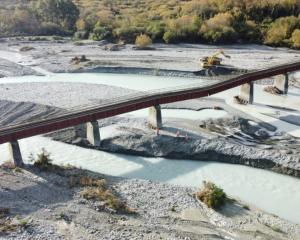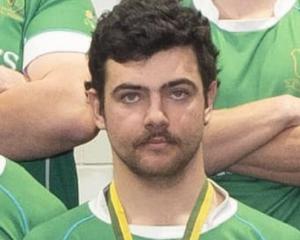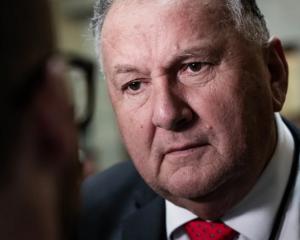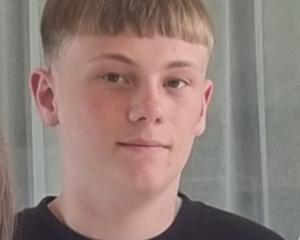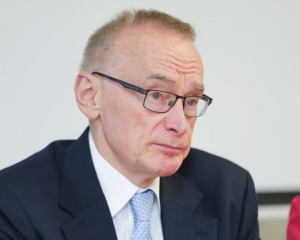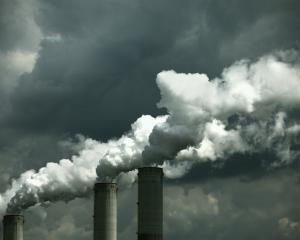Two countries, two earthquakes - the effects of the Canterbury earthquake in February 2011 and the Japan earthquake and tsunami the following month were devastating. Four years on, Tracey Roxburgh hears from experts about strategies for helping children cope.
When the world is collapsing around them, children often pick up on the need to be brave for their families.
But while there was a belief children were resilient, it was not the case, Japanese child psychologist Hisako Watanabe, a keynote speaker at a child mental health conference in Queenstown, said.
''We need our children to appear resilient for our sake, so that we will not collapse.
''The reality is the opposite - they are very, very sensitive.
''They really understand the implications of these kinds of things ... they even sacrifice themselves, some children become very good children, very easy children, so as to reduce stress in the family.''
Dr Watanabe was involved in the response to the Kobe earthquake in January 1995, which killed almost 6500 people and left about 300,000 homeless.
Ten years later, there was a spike in teen suicide and delinquency as the youngest members of society at the time of the disaster struggled to cope with ongoing effects from it.
In March 2011, less than three weeks after Canterbury's devastating earthquake, Japan was hit again by a devastating natural disaster.
The earthquake and resulting tsunami, which triggered a nuclear crisis as reactors melted down at Fukushima, left 15,000 people dead and as many as 100,000 children uprooted from their homes.
Dr Watanabe, a member of the Postdisaster Child Care Committee, travelled to Koriyma, Fukushima, 10 days after the earthquake with lessons learnt from the previous quake.
A paediatrician with her was ''frozen and stressed'' in a situation which was ''beyond imagination''.
''I told him: `We are pioneers, we do what we can do ... Let's do it from the heart and really do it well, then there will be a heartfelt warmth ... it will light up like a firefly in the massive darkness we are in. It will become a flame'.''
The committee's goal was to provide support and information to parents of young children, but not to be intrusive.
''We embraced those who needed it and allowed them intimate spaces.
''[We] helped mothers to cope in the aftermath; encouraging them to embrace their children, explain it's not their fault, let them know it's OK to cry, but just to be there for them.''
The Japanese response was a collaborative one and, ultimately, it meant there were no presentations of PTSD in children, Dr Watanabe said.
It has has now become a model for post-disaster relief.
Dr Watanabe said the effects of any natural disaster were not only mental or psychological, but holistic.
''As long as your Dads and Mums are smiling, it's OK.
''We have to be very careful not to be venting our negative feelings on to the babies.''
The recent Infant Mental Health Association of Aotearoa New Zealand (IMHAANZ) conference in Queenstown drew 120 delegates from across New Zealand and Australia, including representatives from the Ministry of Health, Plunket, leading child psychologists and psychiatrists.
It came four years after the 6.3 magnitude Christchurch earthquake, which killed 185 people.
IMHAANZ Christchurch branch chairwoman Fiona Will, speaking on behalf of its members, told the Otago Daily Times questions remained over the ''big picture information'' in Canterbury, in particular, what the future held for the children affected by the earthquakes.
Ms Wills said, anecdotally, there were higher rates of post traumatic stress disorder (PTSD) in Christchurch among young people, as well as a higher rate of mental health referrals.
That was due to ''constant cumulative change, stress and disruption'' in their home lives, where parents were preoccupied with housing and basic needs.
''There are people in Christchurch who feel they've been forgotten.''
Canterbury Earthquake Recovery Associate Minister Nicky Wagner said supporting families had been a key focus for the Government both immediately after the February 2011 earthquake and in the years that have followed.
''It boils down to how well the [parents] are coping as to how well the children are coping.''
Records from immediately after the earthquake showed a decrease in mental health referrals, largely because ''the whole community was focused on one thing''.
The Government's focus was on ''trying to maintain normality'' and keeping families together.
And while anecdotally there was evidence of increased PTSD and mental health referrals in younger children postquake, Ms Wagner said two government bodies had been surveying children and young people for the past four years.
The results were positive, but there was still a long road ahead, she said.
''We're not quite sure what this next year is going to bring for us [but] they say recovery is anything between five and 10 years, [so] it's a matter of continuing that support.''
Ms Wagner said work with the youngest children affected by the Canterbury earthquakes was ongoing, and included that by Red Cross youth workers in schools, parenting support and, using international knowledge, to ensure response was the best it could be.
''We need to keep having input and keep giving people the ability to say they're tired,'' Ms Wagner said.
Dr Watanabe believed that was the most important aspect of postdisaster support.
''To be forgotten is the worst thing.''


